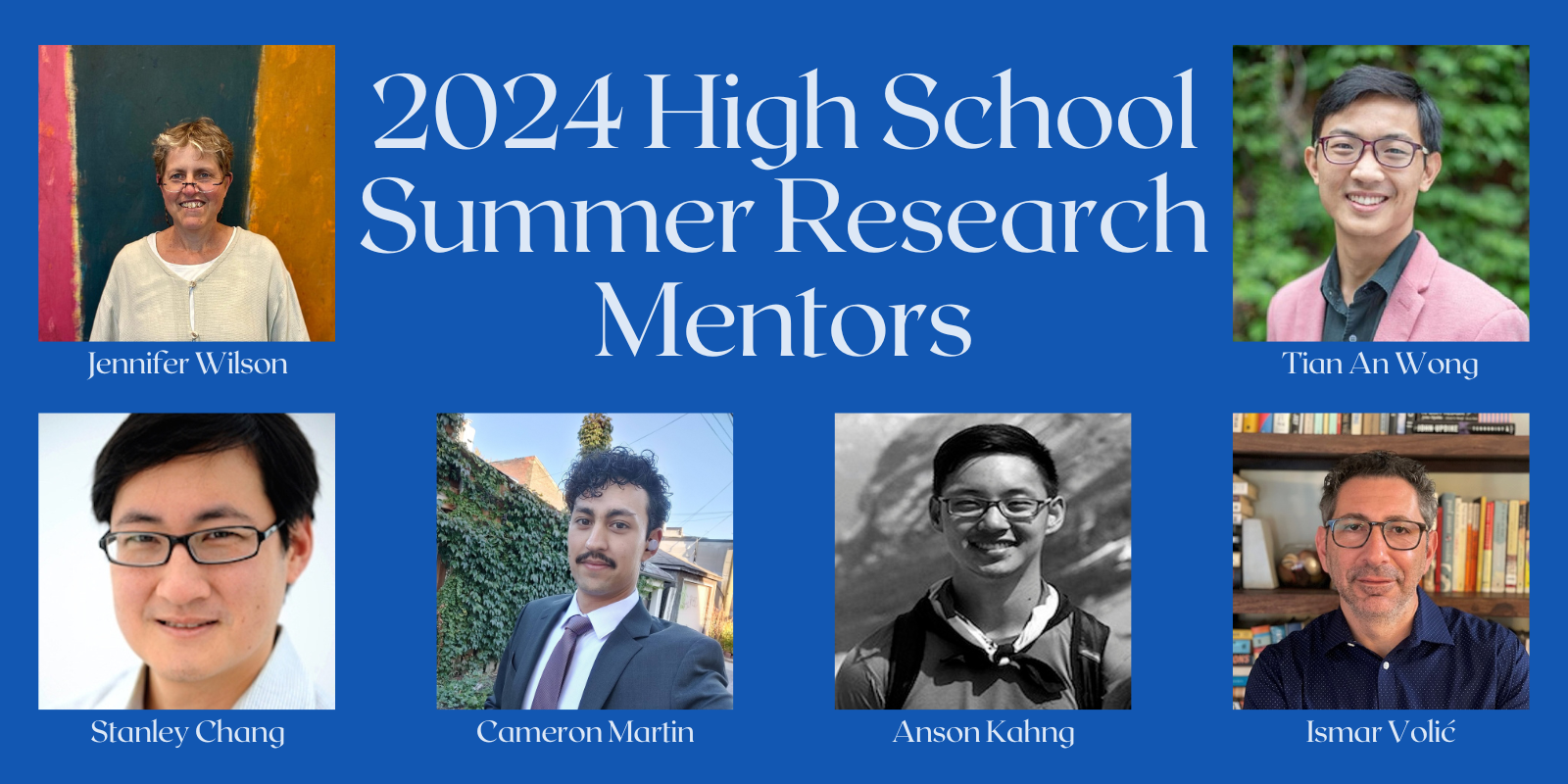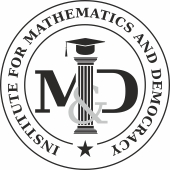2024 High School Summer Research Mentors
As IMD prepares to get started with this year’s high school summer researchers, we would like to acknowledge and thank the mentors who will lead the projects. Each research group will consist of a mentor and a few students working together throughout the summer.
IMD co-founder Stanley Chang is a professor of mathematics at Wellesley College. He and Cameron Martin, a PhD student in mathematics at the University of Toronto, will collaborate this summer. Below is their project description.
“This project will examine the theory of power quantification from the point of view of geometry of simplicial complexes. These spaces can be used to model coalition structures in a political system but in a way that allows for the possibility that some coalitions cannot be formed. This makes for a more realistic model and changes the formulas for various power indices. We will expand this model to include coalition-building on multiple issues simultaneously and apply power index formulas in various real-life situations such as the European Parliament.”
Anson Kahng, Assistant Professor of Computer Science and Data Science at the University of Rochester, will guide students in a project investigating the median voter theorem. See his project description below.
“The median voter theorem states that if there are two candidates on a one-dimensional line and voters have single-peaked preferences, then in equilibrium the two candidates will converge on the viewpoint of the median voter. However, we don’t see this in practice. I’d like to examine how abstention, polarization, and primaries impact the median voter theorem. This would likely draw inspiration from works by Jones et al. (2022) and Serra (2015).”
IMD co-founder Ismar Volić, Professor of Mathematics at Wellesley College, plans to explore elections with a single winning candidate versus multiple winning candidates. Would an election with more than one representative better reflect voters’ interests? Below is an outline of this project.
“In the U.S., we use single-winner districts to elect our state and congressional representatives. Most other democracies have multi-winner districts that elect more than one candidate. In this project, we will study how helpful multi-member districts would be in electing representatives that are proportionally better aligned with the desires of the voters. For example, all of Massachusetts’ nine congressional districts elect Democrats even though about a third of the state’s voters are Republican. However, if Massachusetts had, say, three districts each electing three representatives, the congressional delegation might contain some Republican candidates. We will try to analyze this question for several states where one of the two party’s voters are underrepresented in the state or federal legislatures.”
Jennifer Wilson, Associate Professor of Mathematics at the New School, has research interests spanning various applications of mathematics to politics and voting systems. This summer, her team of students will analyze bloc voting systems, where voters can select multiple candidates according to the number of open seats. See her project description below.
“We will look at Bloc voting using a single-peaked (1-dimensional) model of voter preferences. Given these constraints, we will examine the behavior and characteristics of this voting method for a small number of candidates and winners. (For instance, when the number of winners is close to the number of candidates, it is not possible to have a spoiler ) I anticipate we will look at both complete and partial ballots. The results will be mostly analytical, but if students are interested, we could experiment also with probabilistic models.”
Tian An Wong, Assistant Professor of Mathematics and Statistics at University of Michigan-Dearborn, conducts research in number theory, representation theory, and the mathematics of policing. This summer, their project will explore mathematical analysis of prison gerrymandering. Below is their project outline.
“Prison gerrymandering describes the phenomenon of prison populations contributing to the voting apportionment despite the disenfranchisement of incarcerated persons. In other words, even though people in prison cannot vote, they are included in the population count in the location where they are imprisoned. This is a neglected topic of study precisely because they are not a voting constituency, hence do not hold sway with politicians. This project will explore this topic, and some recent papers that offer quantitative approaches to the study of prison gerrymandering.”
IMD is excited about the work these mentors and their teams will do this summer. Stay tuned for updates on their research!



